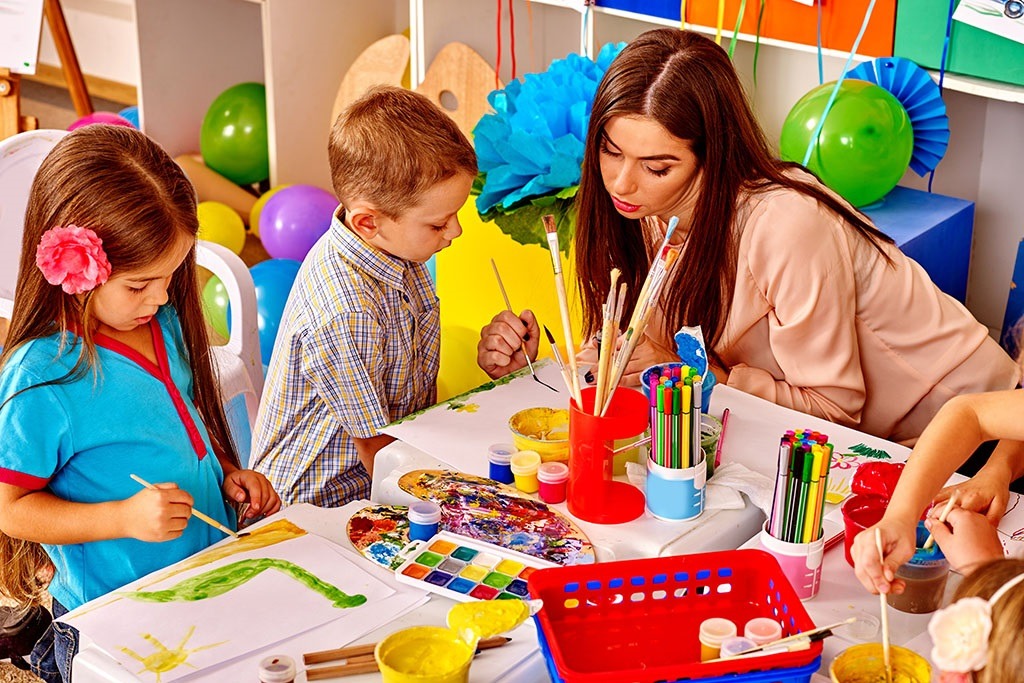Daycare is crucial to a child’s development, offering a nurturing environment that fosters growth, learning, and socialisation. While many parents rely on daycare primarily for childcare, it also serves as an essential foundation for preparing children for the transition to school. When living in Lake Haven, you know the city is well-served with educational institutions. Several schools in and outside the city offer quality education to children of different ages. These schools contribute to the overall development and academic preparation of children. Finding a good day care in Lake Haven would help your child transfer seamlessly to various schools in the area. This article will explore the significant role of daycare in preparing your child for school, from developing social skills to promoting cognitive development.
Building Social Skills: Learning to Thrive in a Group Setting
Nurturing Social Interactions and Cooperation
Daycare provides children with valuable opportunities to interact socially with their peers. They learn to navigate group dynamics, share toys, take turns, and communicate effectively. Through structured activities and playtime, children develop essential social skills such as empathy, cooperation, and conflict resolution, which are vital for success in school settings.
Building Independence and Confidence
Daycare encourages children to become more independent and self-reliant, helping them develop the confidence to tackle new challenges. By participating in age-appropriate activities, following routines, and interacting with teachers and classmates, children gain a sense of autonomy and the ability to adapt to new environments. These skills lay a solid foundation for their transition to school, where they must navigate larger classrooms and interact with new teachers and classmates.
Cognitive Development: Expanding Knowledge and Skills
Early Exposure to Educational Activities
Daycare programs often incorporate educational activities designed to stimulate cognitive development. Through storytelling, arts and crafts, music, and early literacy programs, children are exposed to various learning experiences that help develop their language skills, creativity, and critical thinking abilities. This early exposure to educational activities prepares children for the academic aspects of school and fosters a love for learning.
Language and Communication Skills
Daycare environments provide rich opportunities for children to develop language and communication skills. Engaging in conversations with teachers and peers, participating in group activities, and listening to stories contribute to language acquisition and vocabulary expansion. These language skills are essential for school readiness, as children must communicate with teachers, follow instructions, and actively engage in classroom discussions.
Fostering Cognitive Abilities and Problem-Solving Skills
Daycare programs promote cognitive development by engaging children in activities that enhance their problem-solving skills. Puzzles, games, and age-appropriate challenges help children develop critical thinking, logical reasoning, and decision-making abilities. These skills are valuable as children progress through their academic journey, where they will encounter more complex tasks and concepts.
Emotional and Behavioral Development: Encouraging Self-Regulation
Emotional Regulation and Self-Control
Daycare provides a supportive environment for children to develop emotional regulation and self-control. They learn to identify and manage their emotions, express themselves appropriately, and regulate their behaviour in different situations. These skills contribute to a positive classroom experience, as children can effectively navigate their emotions and interact with teachers and classmates respectfully and productively.
Encouraging Healthy Routines and Responsibility
Daycare instils the importance of routines, responsibility, and following rules. Children learn responsibility and accountability by adhering to daily schedules, practising good hygiene, and participating in tasks such as tidying up. These habits and skills carry over into the school setting, where children are expected to follow routines, take care of their belongings, and contribute to a positive classroom environment.
Conclusion
Lake Haven is a primarily residential area, providing a family-friendly atmosphere for residents. The suburb features a mix of housing options, including detached homes, townhouses, and apartments, making it an ideal place for families to settle down. You can also easily find a day care in Lake Haven for your child. By providing children with a nurturing and structured setting, daycare helps lay the foundation for future academic success, instilling a love for learning and equipping children with the necessary skills to thrive in the classroom and beyond.




